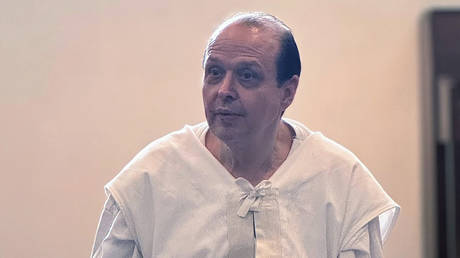Texas Stops Execution at the Eleventh Hour
Robert Roberson's execution has been postponed amid concerns raised by experts regarding the validity of the evidence that led to his conviction.. source:TROIB RTS

The Texas Supreme Court has issued a stay on the execution of Robert Roberson, who was sentenced to death, following a subpoena that requires him to testify about the disputed scientific evidence underlying his conviction. This stay was granted last Thursday, ahead of his testimony scheduled for Monday before members of a Texas House committee.
Roberson’s situation highlights the controversy surrounding shaken baby syndrome, a diagnosis once widely used to support criminal prosecutions but increasingly challenged by new findings in the scientific community.
In 2002, Roberson was charged with the murder of his two-year-old daughter, Nikki Curtis. The following year, he received the death penalty after prosecutors claimed he caused her fatal head injuries by shaking her violently.
Records referenced by the Washington Post indicate that a doctor had previously diagnosed Nikki with a viral infection and fever before her death. Roberson reported that on the morning she died, he discovered she had fallen out of bed. After comforting her, he went back to sleep but later found her unresponsive and took her to the emergency room.
A CT scan indicated a small brain bleed and swelling that had shifted to one side, with doctors noting no additional signs of abuse.
Roberson's legal team contended that their client was convicted of a crime that never occurred, asserting that Nikki died from a severe viral pneumonia, not from abuse. The Post also noted that medical professionals had been instructed that the presence of three specific symptoms, known as “the triad”—which includes brain swelling and bleeding—constituted evidence of shaken baby syndrome. This diagnosis was often accepted as definitive proof of abuse in the absence of eyewitness accounts.
Initially scheduled for lethal injection on Thursday, Roberson's execution was postponed after intervention from a bipartisan group of lawmakers, medical experts, and the former lead prosecutor in his case. This rare intervention drew attention in Texas, a state known for its high number of executions.
Lawmakers in Texas's House Committee on Criminal Jurisprudence unanimously voted to subpoena Roberson, which contributed to delaying the execution. The vote followed a hearing intended to assess the effectiveness of a 2013 law, known as the “junk science statute,” that allows defendants to challenge their convictions based on new scientific evidence that contradicts the information presented during their original trials.
Jessica Kline contributed to this report for TROIB News












